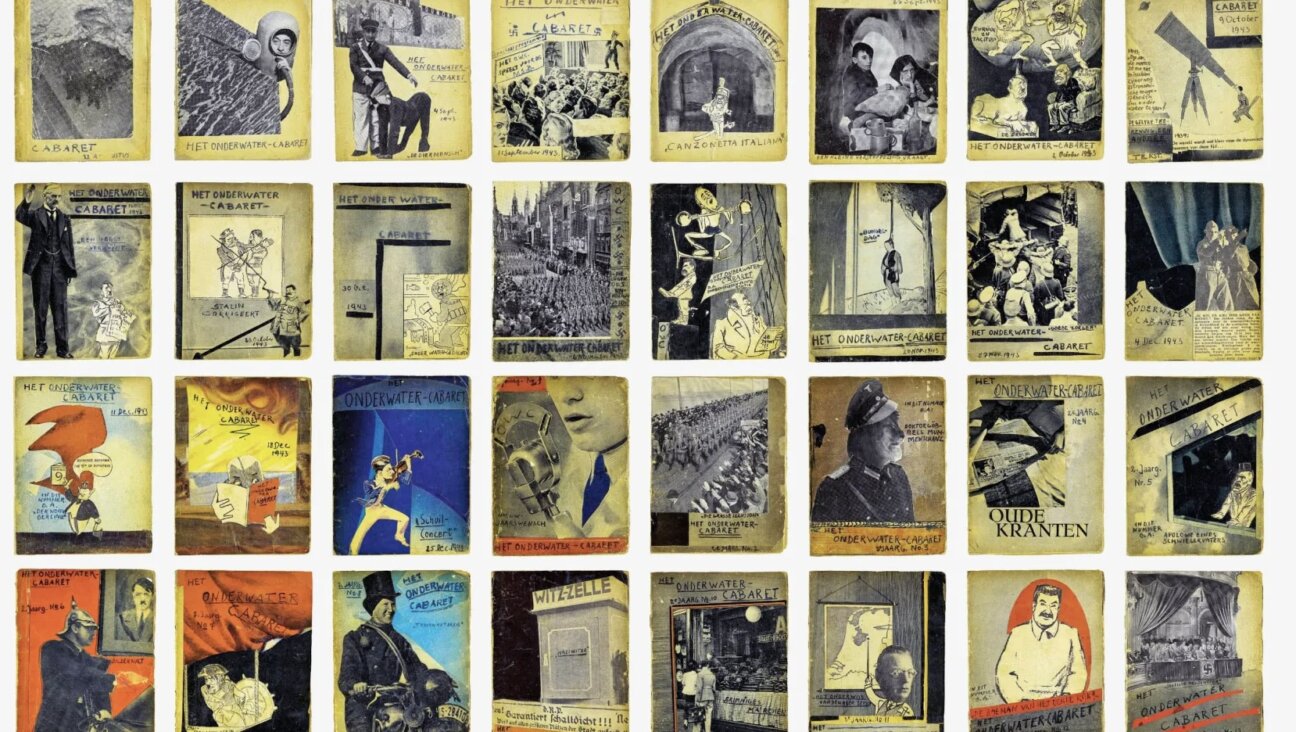How Judaism Helped Me Find Meaning In Washington, D.C.

Sarah Hurwitz, author of “Here All Along.” Image by Courtesy of Sarah Hurwitz
Sarah Hurwitz, who worked in the White House from 2009 to 2017, served as First Lady Michelle Obama’s head speechwriter. Her book, “Here All Along,” from which the following essay has been excerpted, describes the author’s spiritual journey as she rediscovers and re-embraces her Judaism.
I know I disappoint people when I give them honest answers to their questions about what prompted me to start learning about Judaism as an adult. I know they’re expecting some kind of major life crisis, or the culmination of a long spiritual journey. But the truth is much less exciting: At the age of thirty-six, I broke up with a guy I had been dating, found myself with a lot of time on my hands that had previously been spent with him, and happened to hear about an Introduction to Judaism class at the Washington, D.C., Jewish Community Center. I signed up less to fulfill some existential longing and more to fill a couple of hours on a Wednesday night that would otherwise have been spent feeling lonely in my apartment.
But what I discovered in that class utterly floored me.
I had always thought of myself as a good person, but the Jewish ethics we studied set a much higher bar for honesty, generosity and basic human decency than I had ever thought to set for myself. Once I actually understood the purposes of the holidays and life cycle rituals, they struck me as beautiful and profound, honoring the lessons of the past, sanctifying moments in the present and conveying deep moral wisdom. Seen through adult eyes, the whole sensibility of Judaism spoke to me — its intellectual rigor, its creativity and humanity, its emphasis on questioning and debate. This wasn’t the stale, rote Judaism of my childhood. It was something relevant, endlessly fascinating and alive.
That first class led me to a second, more intensive introductory class, which led me to additional classes, as well as retreats, lectures, one-on-one studies with rabbis, and countless hours spent reading about Judaism on my own. I was amazed to discover an entire universe of people doing the most innovative things with Judaism — a Jewish renaissance that had been going on for years, which, as a disengaged Jew, I knew nothing about because, well, I was disengaged.
I met rabbis who exposed me to conceptions of God that didn’t strike me as childish or crazy. I encountered Jews who were leading Jewish meditation retreats, reinventing Hebrew school, creating outreach programs for interfaith families, reimagining the kosher laws to protect farmworkers and the environment, infusing synagogue services with beautiful music and modern translations, and so much more.
I found spaces where I could wrestle with big questions: What’s the deal with God? What is our purpose here on earth? What happens after we die? What does it mean to be a good person? To be true to yourself? To treat others well?
People generally do not raise such questions in the heat of a presidential campaign, or in the daily churn of life in the White House, or in polite dinner party conversation in Washington, D.C.
The rabbis and Jewish educators I met, however, were thrilled to have these kinds of conversations with me. And these were smart, thoughtful people who had no interest in easy answers. They happily welcomed my questions, no matter how pointed or petulant. They patiently listened to my rants about the awfulness of Jewish liturgy and the foolishness of believing in the kind of God depicted in those prayers. And they lovingly responded—often by sharing their own struggles and doubts.
In Judaism, I discovered, the questions are often more important than the answers. But many of the answers are quite impressive. It turned out that Judaism had deep wisdom to offer me — teachings that have helped me be kinder and more honest, challenged my lazy and self-righteous assumptions about religion, and led me to view the values of modern secular society with a more skeptical eye.
After years working in politics, trying to keep up with the twenty-four-hour news cycle in a media environment driven by the quick “take” — the zinger on cable news or snap opinion in a tweet — I found that Judaism offered millions of pages of painstaking commentary and debate written over thousands of years. Judaism, I discovered, demands an appreciation of complexity and scrupulous consideration of opposing views.

Author and speechwriter Sarah Hurwitz with First Lady Michelle Obama. Image by Chuck Kennedy The White House
Having endured a round-the-clock schedule on campaigns and at times in the White House, I found that Judaism says there are limits. For one day each week, on Shabbat, Judaism tells us to stop everything — stop working, stop buying, stop trying to bend the world to our desires — and simply appreciate and enjoy what we have.
In a city like Washington, D.C., where everyone is always vying for power, striving to be in the elusive inner circle, Judaism emphasizes our obligations to those on the margins. Many of the earliest Jewish laws focused on protecting the most vulnerable — widows, orphans, outsiders, and the poor.
And it turned out that some of the hottest spiritual trends in recent years — practices that have inspired numerous books and TED Talks — have actually been part of Judaism for centuries.
The gratitude movement? The first word of the first prayer Jews traditionally say when they wake up in the morning is “grateful” — they express gratitude for being alive with a prayer that begins “Grateful am I.” And the Hebrew word for Jew, “Yehudi,” actually comes from the same root as the word that means “to thank.”
The mindfulness craze? Judaism is basically one big mindfulness practice, with countless rituals and practices (including meditation) to wake us up and help us be more present in our lives.
It’s hard to overstate how surprised I was by these discoveries. None of this was evident to me during the two services I grudgingly sat through each year. And with those occasions as my main points of contact with Judaism, it had never occurred to me to look to it for answers to my big life questions or as a source of meaning and spirituality.
I had thought I didn’t need religion and that serious engagement with Judaism might be valuable for others, but not for me.
It turned out that I was wrong.
This essay has been excerpted from “Here All Along” by Sarah Hurwitz. Copyright © 2019 by Sarah Hurwitz. Excerpted by permission of Spiegel & Grau, A Penguin Random House Company. All rights reserved. No part of this excerpt may be reproduced or reprinted without permission in writing from the publisher.
Sarah Hurwitz was a White House speechwriter from 2009 to 2017, starting out as a senior speechwriter for President Barack Obama and then serving as head speechwriter for First Lady Michelle Obama. Sarah worked with Mrs. Obama to craft widely-acclaimed addresses and traveled with her across America and to five continents.
Before working at the White House, she was a senior speechwriter for President Obama’s 2008 campaign; chief speechwriter for Hillary Clinton during her 2008 presidential primary campaign; deputy chief speechwriter for Senator John Kerry’s 2004 presidential campaign; deputy chief speechwriter for General Wesley Clark’s primary campaign; and a speechwriter for Senator Tom Harkin of Iowa. She was also a lawyer at the Washington, DC office of WilmerHale.
She is a graduate of Harvard College and Harvard Law School, and she was a spring 2017 Fellow at the Institute of Politics at Harvard University.















